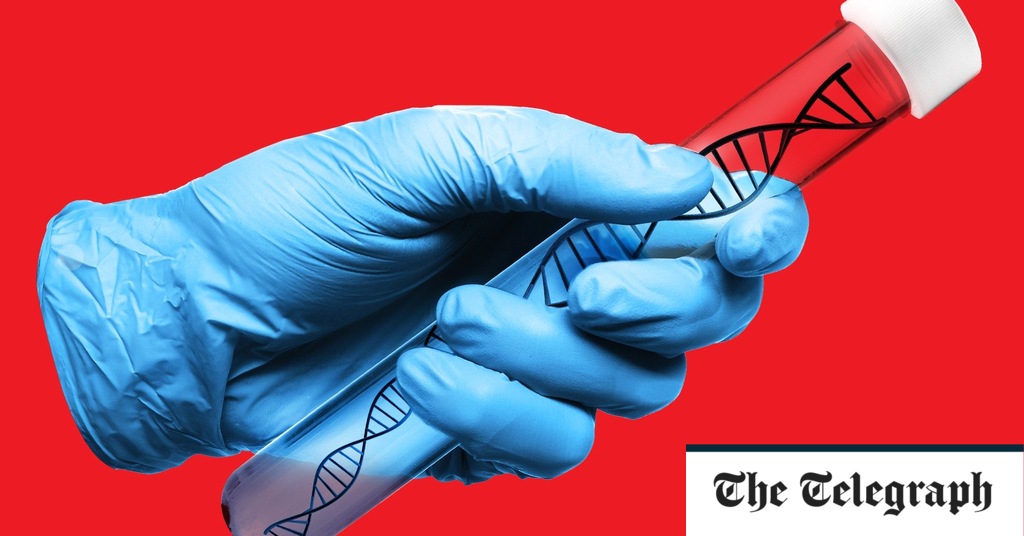Blood
Life-changing blood disease treatment approved in UK at £1m cost per patient
A potential cure for two inherited blood diseases using gene therapy has been authorised by Britain’s medicine regulator in a world first.
The treatment, Casgevy, for sickle cell disease and beta thalassemia, is the first to be licensed using the gene-editing tool known as Crispr, for which its inventors were awarded the Nobel Prize in 2020.
The Medicines and Healthcare products Regulatory Agency (MHRA) has found the treatment to be safe and effective for use and granted authorisation for use in patients over 12.
It is estimated the treatment could cost around £1million per patient and following MHRA approval will now be available legally in the UK privately.
The National Institute for Health and Care Excellence (Nice) will now evaluate the financial viability of the drug and assess its cost-effectiveness. If Nice approves Casgevy then it will also be available on the NHS.
Britain is the first in the world to authorise the use of Crispr therapy for use in patients. The technology is based on a bacterial mechanism that can precisely snip out and replace specific chunks of DNA.
Both sickle cell disease and beta thalassemia are conditions caused by errors in the genetic code of haemoglobin, the iron-containing protein which makes blood red and transports oxygen around the body.
Sickle cell disease is particularly common in people of African or Caribbean descent while beta thalassemia is a hereditary condition which is common in people of Mediterranean, south Asian, south east Asian and Middle Eastern origin.
There are around 15,000 people in the UK with sickle cell anaemia and around 1,000 with beta thalassemia. There are an estimated 2,000 patients eligible for Casgevy in the UK, Vertex said.
‘Painful, life-long conditions’
Symptoms of sickle cell disease can include very severe pain, serious and life-threatening infections, and anaemia.
People with beta thalassemia can have severe anaemia. Patients often need a blood transfusion every three to five weeks, alongside regular injections and medicines.
Both conditions are single-cell defect diseases, with just one faulty gene causing the disease. Crispr is able to locate the defective chunk of DNA responsible for the poor-functioning haemoglobin, remove it, and insert a healthy version back into the genetic code.
A clinical trial of 99 patients with the conditions saw the participants have the stem cells from their bone marrow removed from their bodies before scientists in a lab used Crispr to fix the defective gene, called BCL11A gene. These now fully functioning cells are then put back into the patient’s body.
The patients spend about a month in hospital for the procedure and over this time the stem cells settle back into the bone marrow and begin making improved haemoglobin.
It is hoped the treatment will be a one-time administration which could resolve the disease for life. In the sickle cell anaemia study, 28 of 29 people with sufficient data were pain-free after a year.
For the beta thalassemia tranche of the study, 39 of 42 patients with enough data did not need a blood transfusion within 12 months of Casgevy.
The remaining three had more than a 70 per cent reduction in the need for red cell transfusions.
Imperial scientists led the trial and Prof Josu de la Fuente, principal investigator, said the MHRA approval “offers a new option for eligible patients”.
“I look forward to patients having access to this therapy as quickly as possible,” Prof de la Fuente, Professor of Practice (Cellular & Gene Therapy) at Imperial College London and Consultant Haematologist at Imperial College Healthcare NHS Trust, said.
Julian Beach, interim executive director of healthcare quality and access at the MHRA, said both conditions “are painful, life-long conditions that in some cases can be fatal”.
He added: “To date, a bone marrow transplant – which must come from a closely matched donor and carries a risk of rejection – has been the only permanent treatment option.”
‘A positive moment in history’
John James, chief executive of the Sickle Cell Society, said: “Sickle cell disorder is an incredibly debilitating condition, causing significant pain for the people who live with it and potentially leading to early mortality.
“There are limited medicines currently available to patients, so I welcome today’s news that a new treatment has been judged safe and effective, which has the potential to significantly improve the quality of life for so many.”
Prof Simon Waddington, Professor of Gene Therapy at UCL hailed the authorisation of the Crispr treatment as a “tremendous advance” in the way these debilitating conditions are treated.
Dr Helen O’Neill, Programme Director of Reproductive Science and Women’s Health at UCL, added that Crispr holds the key to “the future of life-changing cures”.
“Genome editing has the potential to transform medicine but is currently typically applicable to blood-based disorders due to the ability to transfuse blood,” she said.
“The use of the word “cure” in relation to Sickle cell disease or β-thalassemia has, up until now, been incompatible. The move by the MHRA to approve this therapy signals a positive moment in history.”
Reshma Kewalramani, president of Vertex, which launched the drug together with Crispr Therapeutics, said: “Today is a historic day in science and medicine: this authorisation of Casgevy in Great Britain is the first regulatory authorisation of a Crispr-based therapy in the world.”

